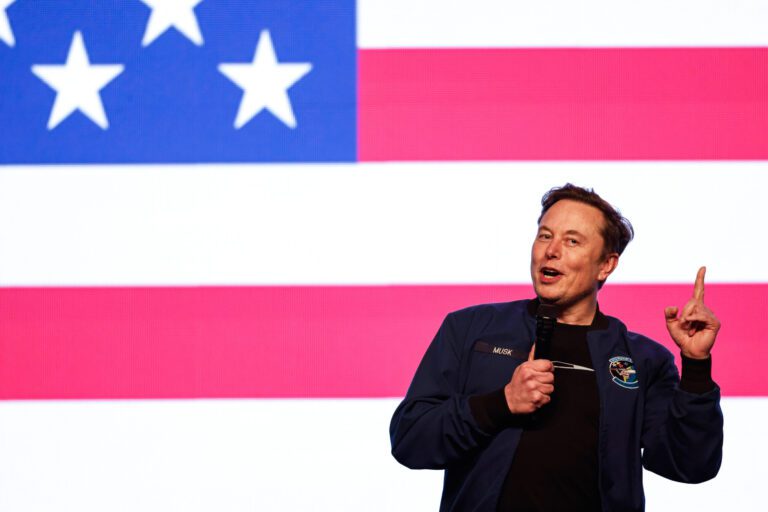The Rise of a Potential Third Party: Could Musk’s “America Party” Change U.S. Politics?
In the wake of the last presidential election, where over 154 million Americans cast their votes—marking a turnout of (64\%), the second highest since 1908—many still feel disenchanted with their political choices. As the United States gears up for the 2024 election, a striking (91 million) eligible voters chose to remain absent from the polls, highlighting a growing disengagement within the electorate.
Voter Apathy and Registration Challenges
Despite having approximately 245 million eligible voters, only 174 million are registered, translating to a mere 74%. This discrepancy illustrates a deep-rooted apathy felt by many, stemming from:
- Limited Choices: The major political parties often appear indistinguishable, particularly on fiscal policies. Republican presidents, on average, add about $1.4 trillion to the national debt per term, compared to $1.2 trillion under Democrats.
- The Complexity of Third Parties: Establishing a new political entity in the U.S. involves navigating complex state regulations, time-consuming ballot access requirements, and costly legal battles.
In this context, billionaire entrepreneur Elon Musk chimed into the conversation about a potential third party.
Elon Musk: A Potential Game Changer
Musk, the CEO of Tesla and SpaceX, has emerged as a unique contender in the political arena. A seasoned election lawyer, Brett Kappel, remarked that only a figure with Musk’s wealth could realistically attempt to form a new American political party.
The Birth of the “America Party”
As speculation around Musk’s political ambitions grew, he hinted at launching a new entity dubbed the “America Party.” This proposal arises amid the passage of a substantial tax-and-spending bill projected to increase the national debt by an additional $3.4 trillion over the next decade, according to estimates from the Congressional Budget Office. Musk declared:
“If this insane spending bill passes, the America Party will be formed the next day. Our country needs an alternative to the Democrat-Republican uni-party so that the people actually have a voice.”
The Resource Advantage
Musk’s estimated $410 billion net worth positions him uniquely to self-finance a national campaign, a rare advantage for most independent candidates who typically rely on donor support. His wealth enables:
- High-impact advertising across various media platforms
- Targeted digital marketing campaigns
- Recruitment of top political strategists
This financial flexibility, combined with his anti-establishment persona, could resonate with voters frustrated by conventional politics.
Challenges Faced by Third Parties
Historically, third-party candidates in the U.S. have struggled to gain traction. Ross Perot’s performance in 1992, where he garnered nearly 19% of the popular vote, stands as a rare exception. However, the political landscape may be shifting:
Growing Appetite for Change
Musk recently utilized his social media platform to gauge public sentiment, asking his 221 million followers if the time has come for a new political party that embodies the “80 percent in the middle.” The response was overwhelming, with 80.4% agreeing that a new option was needed.
Implications for the Republican Party
Should Musk move forward with the America Party, the ramifications could be significant. Third-party votes have historically influenced close elections. For instance, Ralph Nader’s candidacy in 2000 is often cited for affecting the outcome by siphoning votes from Al Gore in Florida, ultimately aiding George W. Bush’s victory.
The Republican Support Base
Musk’s rising popularity among conservatives, with 73% of Republicans holding a favorable view of him, may lead to divided support within the Republican base, particularly in pivotal elections.
Financial Contributions and Alternative Support
Even if Musk never formally establishes the America Party, he has hinted at “gumming up the works” in the existing political system. This includes possibly financing independent candidates or backing Republicans who oppose mainstream party lines—such as Kentucky’s Thomas Massie, known for his opposition to Trump’s policies.
The Future of American Politics
Musk’s bold rhetoric and financial clout make him an intriguing figure in American politics. Despite the logistical hurdles of forming a new political party, the very notion of his involvement is reshaping the political landscape. His next moves could either reinforce the status quo or lead to a significant disruption in U.S. political dynamics.
For more insights on U.S. voting and current political trends, visit the Pew Research Center and the Congressional Budget Office.
This article aims to engage readers while providing clear, structured information on the evolving political landscape in the U.S., enhancing SEO through relevant keywords and valuable external links.


